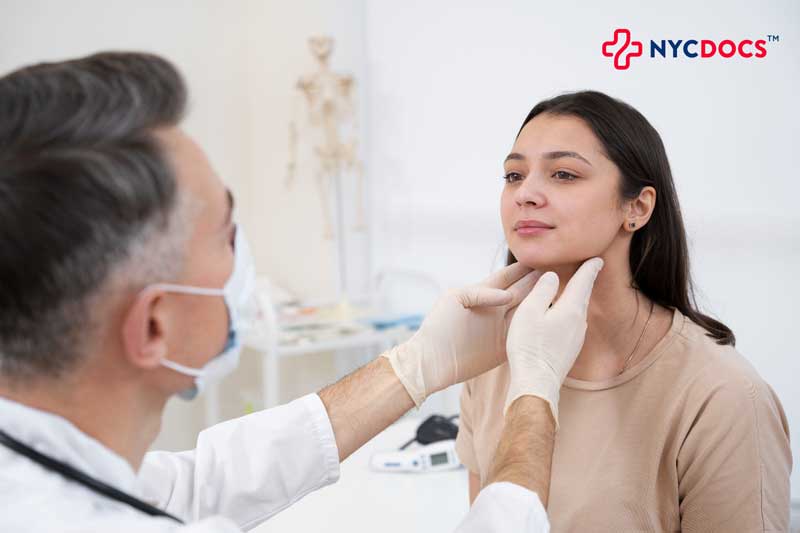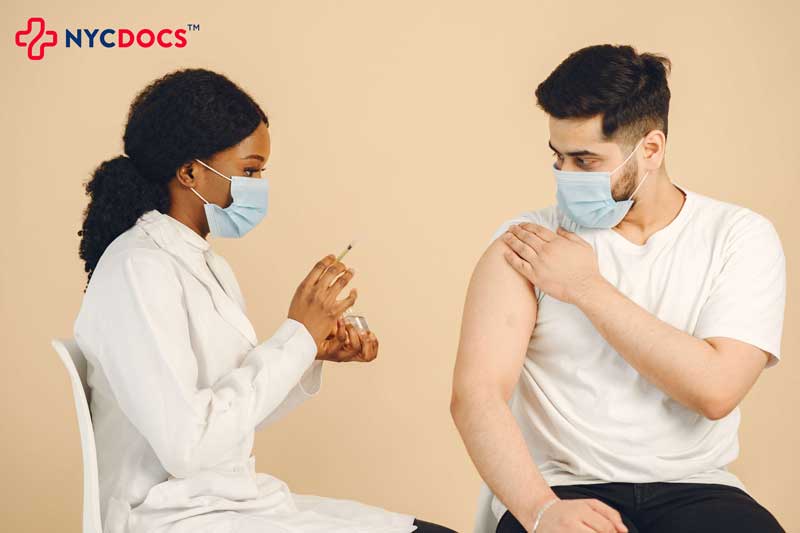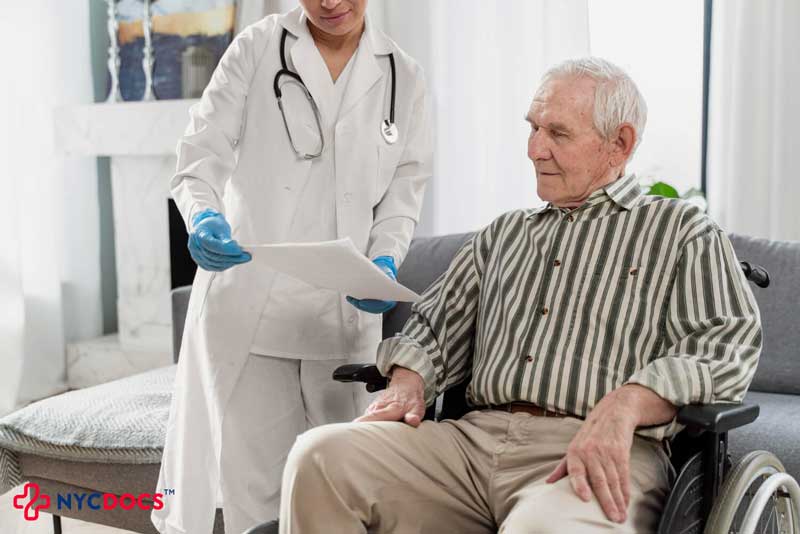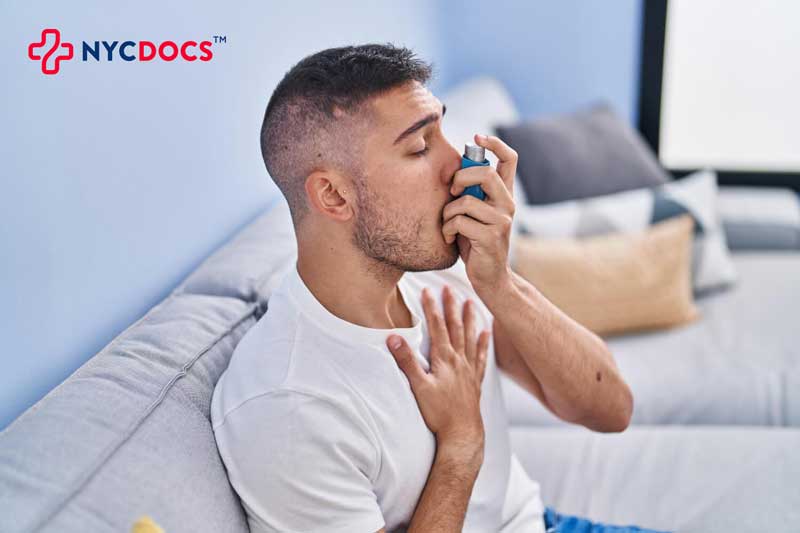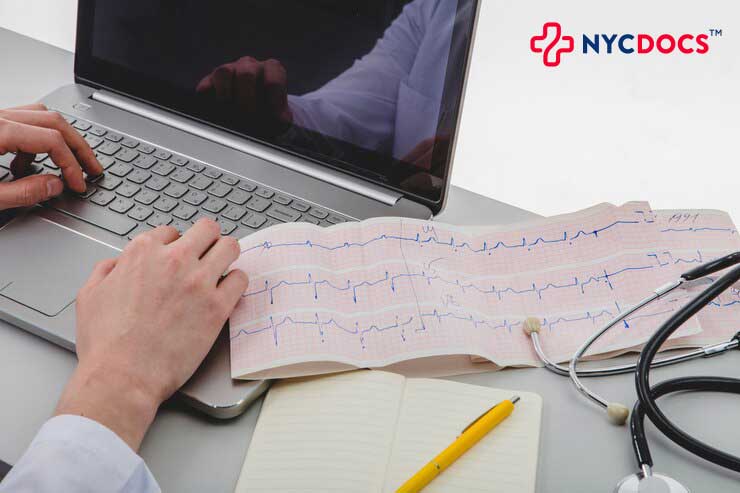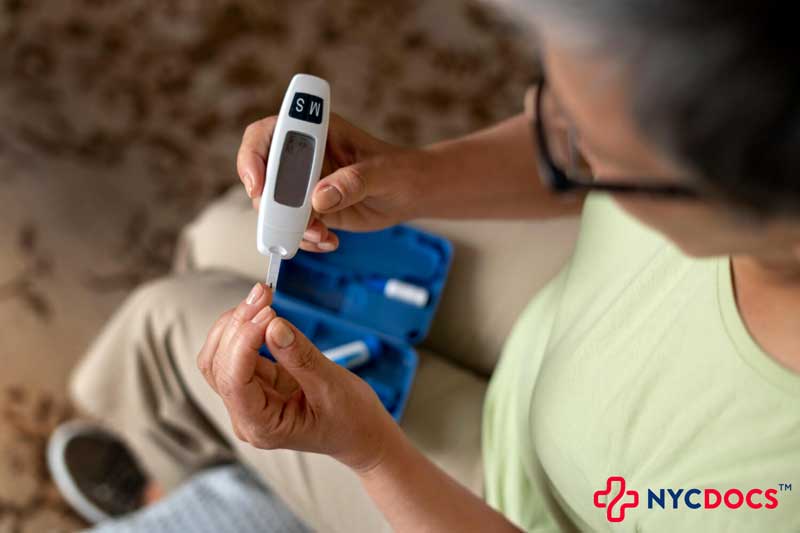Read on to learn all about the DOT physical exam and what it means for you!

If you are studying this blog, chances are you're applying for a DOT physical exam.
Well, you're in the right place.
This blog will tell you anything you need to know about the DOT physical exam before you do it so that you can learn more beforehand and prepare for the examination without feeling nervous or afraid.
What is a DOT physical exam?
DOT physical exam is a certification for commercial drivers, like bus and truck drivers. It is nothing to worry about! This blog will help you prepare a DOT physical, pass it with flying colors, and get a 24-month dot CDL physical card!
Commercial drivers spend a long time on the road. Therefore, ensuring the stability of their health is necessary. And if you are trying to be one, you would greatly benefit from knowing the problems you may have as well.
Long hours on the road can also be an issue of public health and safety because if you face any health issue while on the road, you might cause harm to someone unwillingly.
This is why federal law requires all commercial motor vehicle drivers to undergo routine physical examinations. These examinations are called DOT (Department of Transportation) Medical Examinations. These exams are strictly monitored by the DOT so that the drivers and the general public can stay safe from harm.
DOT examiners, as we have in NYCDocs, are required to learn driving rules and to understand the process and assist the system to be safer.
What is included in a DOT physical exam?
A DOT physical exam is how the examiner assesses your readiness to work. You will get a DOT medical card or certificate if you pass the exam. But, to get the card, you must meet a few criteria. Here are the tests that you will go through:
Vision test: It is obvious why a driver needs good vision. But there is no need to worry if your vision isn't perfect. The exam is designed to consider the usage of contact lenses, glasses, or corrective lenses. You will still pass the exam if you can see well with their help.
Besides eyesight, the test also measures your field of vision, meaning how far you can see beside, over, or under you while looking at a specific thing. You will pass the exam if you can see 70 degrees temporally, which means 70 degrees on your side. An average person has a 95-degree temporal field of vision, so you can pass with less eyesight than usual.
Finally, you should be able to identify and differentiate between colors. This verifies that you can read signs and signals correctly and rapidly. Also, bring paperwork from your optometrist or ophthalmologist if you have any visual problems.
Hearing test: You also need to have a good sense of hearing. The examiner will perform a forced whisper test on you. They whisper phrases or numbers into your ear from about five feet away.
People who use hearing aids can use the aids during the test. If you do not pass the whisper test, you will have to go through an audiometric hearing test. This means they will test you with various sounds while you wear headphones. If you pass that test, you will still be accepted.
Blood pressure and heart rate: Blood pressure will also be carefully checked to rule out hypertension, other complications, and your heart rate for abnormalities. These tests are done so the DOT understands you can drive under stress or when tired from a long drive.
Urinalysis: When you hear "urine testing," you may immediately think of drug tests. That is not the case with the DOT physical examination. During your DOT test, the urinalysis checks your blood sugar and protein levels to identify whether you are diabetic, pre-diabetic, or have any kidney problems, such as an infection.
This is a pretty significant area because if you have diabetes or have kidney problems, you would need to stop frequently or might even have medical emergencies while on the road, which would endanger you and everyone around you.
Physical exam: The Medical Examiner (ME) will take many tests to understand your coordination, reflexes, and balance. They will examine potential mobility restrictions, such as bodily components or function anomalies. If any abnormal results are discovered, the medical examiner will discuss them with you before determining whether they impair your ability to drive safely.
These are important because if you don't have a good sense of balance, you might not understand the proper depth of a slope in the road while driving, which could lead to an unfortunate and avoidable crash. The same goes for reflexes and coordination as well.
Review of Medical History: After everything else, your medical history will be reviewed to understand if you had any prior illness that might make a sudden return.
It's necessary to provide a complete list of all medications you currently take, whether prescription or over-the-counter. Certain medications can have side effects or interactions that may impact your ability to operate a commercial vehicle safely. Be thorough when detailing your medical history, including past surgeries, chronic conditions, or serious illnesses.
If you have an issue that might be a problem, the examiner might ask for further examination. If you don't, you're good to go!
What should you bring to your DOT physical exam?
If you are a driver coming to NYCDocs or any other DOT physical examination:
- Bring a copy of your driver's license.
- Bring a comprehensive list of medicines. These can be any medicines you take, prescription or otherwise.
- Bring a full bladder. For your urinalysis, you will be asked to urinate. Make sure you can do so.
- If you use prescription glasses, contacts, or hearing aids, kindly bring them. Do not try to hide these facts. You will be more likely to be disqualified if you try to hide your conditions. Instead, use the help from these aids.
What are the criteria of the DOT for physical blood pressure?
There are two blood pressure criteria, one is systolic (the bigger number) and the other is diastolic (the smaller number).
If your blood pressure is less than 140 systolic and 90 diastolic, you will be authorized to drive for two years or 24 months.
If your blood pressure is 140-159 systolic and 90-99 diastolic, you will be authorized to drive for one year or 12 months.
If your blood pressure is 160-179 systolic and 100-109 diastolic, you will be authorized to drive for 3 months. After that, you will need to test again. If your blood pressure is 140-159 systolic and 90-99 diastolic after 3 months, you will get a 12-month license.
If your blood pressure is more than 180 systolic or 110 diastolic, you will not be authorized to drive at all.
AT A GLANCE:
Under 140/90 – 24 month certificate
140-159/90-99 – 12 month certificate
160-179/100-109 – 3 month temporary certificate
Over 180/110 – DOT disqualifier
Also, your blood sugar needs to be under 200.
How to prepare for a DOT physical exam?
You should avoid heavy meals and coffee or cigarettes before your DOT physical. A full stomach and caffeine or nicotine may produce a false positive for hypertension or high blood pressure.
Caffeine temporarily elevates blood pressure. This isn't a significant issue, but when you try to take the physical exam, this elevated blood pressure will be recorded, which might end badly for you.
Also, high cholesterol, high sugar, and high-fat meals may produce false positives for other chronic illnesses. Take the time before your test to have a light meal low in fat, sugar, and caffeine. Meals rich in salt and sodium can also temporarily increase blood pressure, so try to avoid them.
Stress is another big reason for high blood pressure and other chronic diseases, so please take some time to unwind before your DOT physical. Use a day off to finish the test. Try to avoid squeezing the test within your already busy day. The stress or the tiredness will seriously hamper your ability to work. Therefore, it will affect the examination.
If you need an examination immediately, consider seeing a medical provider that offers walk-in clinic access.
Additionally, try sleeping for more than eight hours, deep breathing, meditation, and other mindfulness-based activities to relax.
Possible results of a DOT physical exam
There are usually three potential results for you if you are taking DOT physicals.
Pass: If you pass the health screening with flying colors, you will get a regular two-year medical card. You don't need to do anything else in this case for 24 months. You can take a job.
Short-term pass: If you have a problem that doesn't stop you from driving but might still cause long-term issues, you will be eligible for a short-term card, allowing you to drive commercially for 3 - 12 months. Afterward, you'll need to test again to get a complete pass or another extension.
Fail: Unfortunately, if you have severe issues that will put you or others in harm's way, you will be tagged as an outright failure.
What happens if I fail my DOT physical exam?
There is a high chance you will pass your DOT physical exams without issue. But, you should be prepared for disqualification.
Common reasons for disqualification include high blood pressure, vision problems, or certain medical conditions.
If you receive a temporary disqualification, don't panic. You have options, including appealing the decision or seeking a second opinion from a specialist.
Understanding the process and taking proactive steps can help you address potential disqualifications effectively.
Do I have to do any follow-up examinations?
Sometimes, a follow-up examination may be required to address specific health concerns or monitor progress.
Also, if you have a disqualifying condition, you may still have avenues to continue your career through medical certificates and waivers. These waivers are granted under specific circumstances, and understanding the process and eligibility criteria is crucial to maintaining your driving privileges.
Ensuring timely follow-up and compliance with medical recommendations can be instrumental in your journey.
Takeaways and Final Thoughts on DOT physical exams
DOT physical exams are necessary to ensure road safety for all. Your health and compliance with regulations are also necessary to success as a commercial driver.
Prioritizing regular check-ups, accurate disclosure, and proactive management of your health can contribute to a successful and fulfilling career on the road.
Recommended reading and websites
For further reading and staying informed about DOT regulations and health guidelines, we recommend exploring authoritative sources such as the Federal Motor Carrier Safety Administration (FMCSA), and reputable medical journals that provide insights into medical conditions and treatments that may affect your DOT physical examination.
Stay informed, stay healthy, and drive safely!




